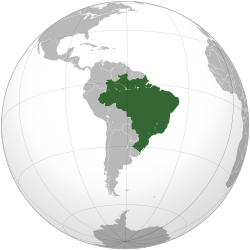Agrarian Reform Should Be One Of Brazil’s Priorities – Interview Archbishop Of Manaus
By Paolo Moiola
Interview with Monsignor Luiz Soares Vieira, Archbishop of Manaus
The Amazon is being destroyed in the name of development. In Brazil, the sixth largest economy in the world, injustice and corruption reign supreme, according to the Archbishop of Manaus, Monsignor Luiz Soares Vieira, former bishop of Macapá (state of Amapá) for more than 20 years and former vice-president of the National Conference of Brazilian Bishops, or CNBB. He spoke with Latinamerica Press correspondent Paolo Moiola about his experiences in the Brazilian Amazon.
Msgr. Vieira, you have lived in the Amazon since 1984. What is your understanding of this unique region?

It’s hard to define it, but without a doubt it is the future of humanity, an ecosystem, and has, for example, the largest freshwater reserve in the world. Still, it’s not only nature, but also the collection of different communities: there are native populations, the ribeirinhos or inhabitants of the riversides and the [Afro-Brazilian] quilombolas, and lastly, people who emigrated from other regions. If I had to define it in one sentence, I would say that the Amazon is a complex of nature and people. I am in love with this region, and I fight for it.
Your answer goes to the heart of the matter, since it speaks of a “fight”…
Of course. If we look at an aerial map, we see that the Amazon has already been largely devastated, especially in Pará, Rondônia and Mato Grosso. Agribusiness is one of the primary causes. Our state, Amazonas, for now is the least affected, but we need to be very careful and defend it.
The buzzword in economics and for politicians is “development.” In your opinion, is it possible to reconcile development with the conservation of the Amazon?
It could be possible, but [people] have to want it, from the political side and from the economic side. A project would be indispensable, a holistic plan that doesn’t focus — as it does right now — on the immediate. Currently there is just hydroelectric dam construction causing huge environmental damage and forcing out communities.
It is necessary to respond to the government of Brasília, as a public opinion, nationally and internationally. Without such pressure, the central government will not have the courage to follow a policy of control over the situation in the Amazon.
Or to defend the indigenous communities, its original inhabitants…
The indigenous populations have the right to preserve their language and their customs, and claim from the State the rights they have as citizens under the Brazilian constitution. As the Catholic Church, we have to stand by them. There is one difference with the past: we aren’t the ones that show the way [anymore], but rather they have to be the architects of their own destiny, masters of their story.
Brazil is the sixth largest world power, but it’s also one of the countries with the most inequality. To put it simply: huge wealth lives alongside widespread poverty.
Inequality is a calamity, because it isn’t through the exaggerated wealth of a few and the poverty and misery of the rest that a solid society is built. The government of [former President] Luiz Inácio Lula da Silva [2003-2011] first and Dilma Rousseff today have tried to spread the wealth a little. A part of the population has gotten out of misery. But it is quite small for the world’s sixth largest economy. It would take serious and proportional taxes on income and profits. Let me give you an example. The richest man in Brazil and one of the richest in the world [Eike Batista], has declared his intention to become number one. In Maranhão and Piauí there are people who live chopping firewood from the forests to produce the charcoal that is used in his steel manufacturing. They lead a very miserable life, fringing on slavery, to make this man the richest man in the world. That’s what it means when it is said that a fortune is based on the misery of others.
Regarding corruption, is the problem ongoing?
It’s truly a plague. Political corruption is funneling huge quantities of economic and financial resources to private interests and toward tax havens. For example, it’s known with certainty that the companies participating in huge public works projects pay off officials and politicians. There should be transparency, but I honestly don’t know how the problem can be solved. There are too many people who go into politics not for the public good but for profit. It’s very serious and I personally don’t know what the answer is.
Let’s talk about another injustice. Your country is the size of a continent, but the land is still in the hands of a handful of people and companies. What happened to agrarian reform?
Agrarian reform should be one of Brazil’s priorities. Although it has often been treated as a simple division of the land, it’s really much more complicated: other than the land, people need to be offered credit and technical assistance. In any case, I don’t think the current government is very interested in that reform. It’s content with the money coming into the country thanks to agribusiness exports.
How do you deal with the big and small problems of daily life?
Ours is a church dedicated to society, which seeks to provide answers to social problems. For example, here we have two houses in Manaus that serve people with AIDS. We have two “factories of hope” for drug users. Through the youth ministry, we confront the problem of unemployment, without neglecting pastoral work with the families. In short, we are a church that leaves its four walls to go into the community.
